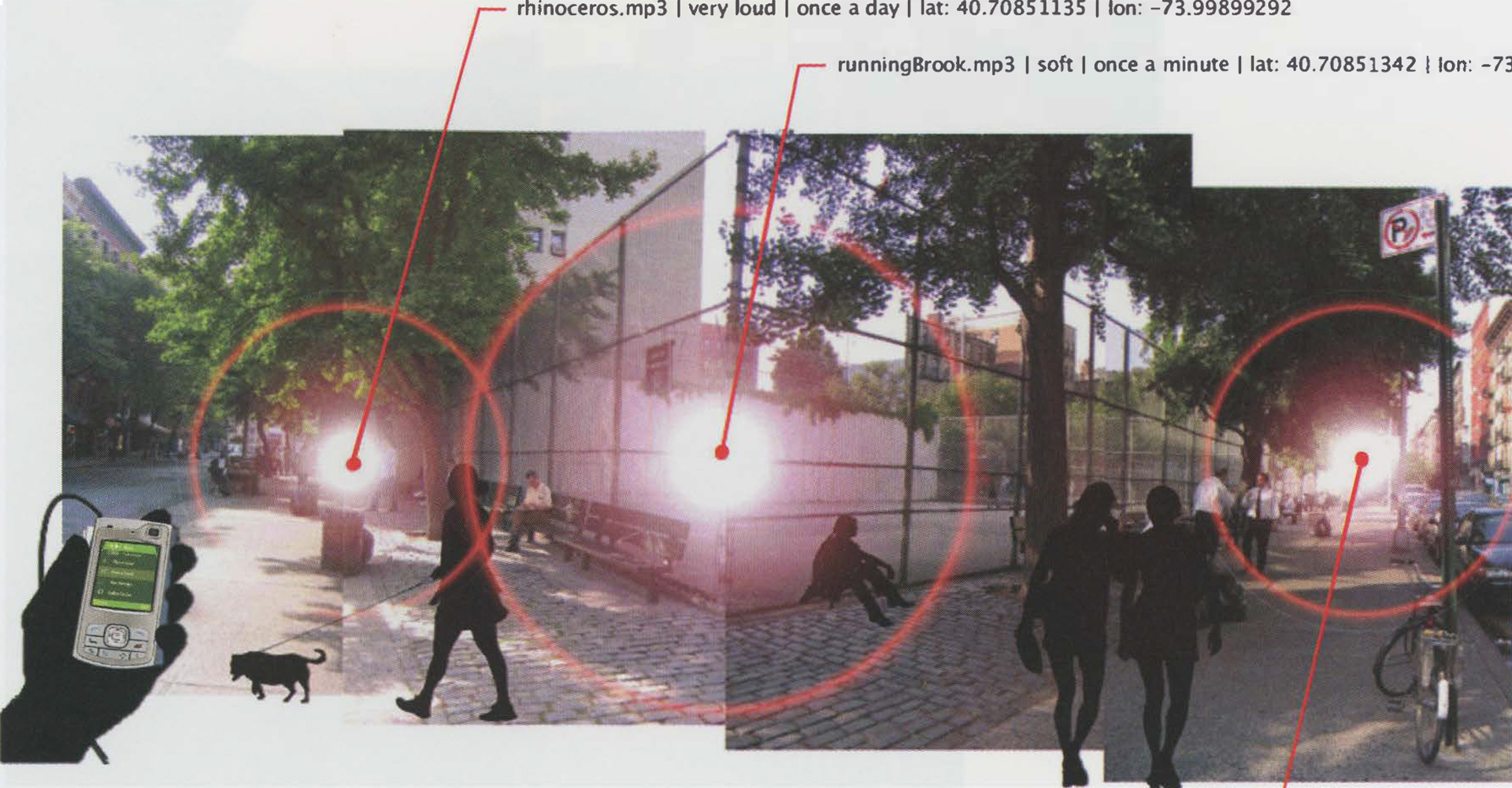Mark Shepard: Tactical Sound Garden Toolkit
Artist(s):
Collaborators:
Title:
- Tactical Sound Garden Toolkit
Exhibition:
Creation Year:
- 2007
Category:
Artist Statement:
This project is an open-source software platform for cultivating virtual “sound gardens” in contemporary cities. It draws on the culture of urban community gardening to posit a participatory platform for new spatial practices and social interactions within technologically mediated environments. Addressing the impact of mobile audio devices like the iPod, the project explores gradients of privacy and publicity in contemporary urban public space. The TSG Toolkit enables anyone living within dense 802.11 wireless (WiFi) “hot zones” to install a virtual “sound garden” for public use. Using a WiFi-enabled mobile device, participants “plant” sounds (or “prune” those planted by others) within a positional audio environment. These plantings are mapped onto the coordinates of a physical location, overlaying a publicly constructed
soundscape onto a specific urban space. Wearing headphones connected to a WiFi-enabled device, participants drift though virtual sound gardens as they move through the city. Where the presence of 802.11 access nodes is minimal, gardens simply consist of plantings along a sidewalk. Where node density is greater, gardens could assume the scale of a neighborhood. In cities where wireless networks are ubiquitous, gardens could extend throughout the entire city.
Technical Information:
The TSG Toolkit is a parasitic technology. It feeds on the propagation of WiFi access points in urban environments as a free, ready-made, locative infrastructure. WiFi access points used to determine the location of a participant may be open or encrypted, and need not be “owned” by those deploying the system. As the hardware component of the infrastructure is tied to the propagation of WiFi networks, the extent of the gardens is cast in a parasitical relationship to that of a specific wireless protocol. For location-based services, the project builds on Placelab (www.placelab.org), an open source, privacy-observant location system developed by Intel Research, Seattle. The system samples WiFi node signal strengths over the geographical limits of a specific location and stores them in a database. Placelab-enabled devices compare signal samples taken within a given location with the database of radiometric signatures and, through a process of triangulation, calculate the geographical position of the participant. This positioning information is fed to a listener object within a 3D sound engine running on the mobile device, which then outputs a real-time audio mix based on the position of the participant within the physical location.





